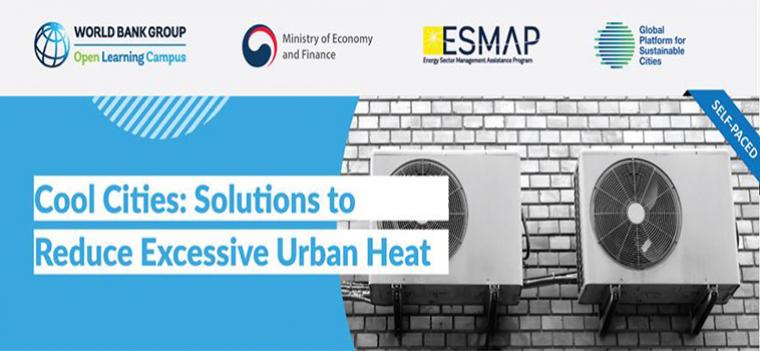News
- Understand the concept of rising urban temperatures as a key resiliency challenge for cities.
- Learn about the concept of passive and active urban cooling and the technical solutions to facilitate passive urban cooling.
- Explore how cities can develop effective policies and programs to implement technical passive urban cooling solutions.
- Gain awareness of general recommendations to develop and implement passive urban cooling solutions and policies.
Cities are getting hotter as a result of growing urbanization and global climate change. The negative impacts of temperature increases are significant and touch nearly every aspect of urban life. Protecting populations from extreme heat is one of the key resiliency and sustainability challenges of the twenty-first century. Successfully implementing measures to cool cities will lead to many benefits, including for health, well-being, productivity, air quality, and energy systems. Urban cooling solutions can be deployed in the short term to help mitigate the risk of rising urban air temperatures.
The Primer for Cool Cities: Reducing Excessive Urban Heat: With a Focus on Passive Measures, published jointly by ESMAP and the Global Platform for Sustainable Cities provides practical, actionable guidance and examples for implementers, policy makers, and planners tasked with mitigating urban heat impacts.
This course will be based on the primer and presented as a series of four modules:
- Introducing Urban Heath and Its Effects: The module will introduce the concept of rising urban temperatures as a key resiliency challenge for cities;
- Technical Solutions to Urban Heat and Barriers to Implementing Them: This module will introduce the concept of passive and active urban cooling and present a series of technical solutions to facilitate passive urban cooling;
- Designing, Adopting and Implementing Policies to Cool Cities: This module will focus on how cities can develop effective policies and programs to implement technical passive urban cooling solutions; and
- Summary of Recommendations: This module concludes the eLearning course with general recommendations to develop and implement passive urban cooling solutions and policies drawn from some o the most common good practices adopted by cities around the world.
Target Audience
Energy, urban design, and urban planning practitioners and policymakers, private sector stakeholders in urban development, and those with a responsibility or interest in passive urban cooling solutions across the world and World Bank staff. No prior background in cooling efficiency, cooling refrigerants, or other technical knowledge of temperature control considerations is required.
For more information, contact | Martina Bosi (esmap@worldbank.org)
